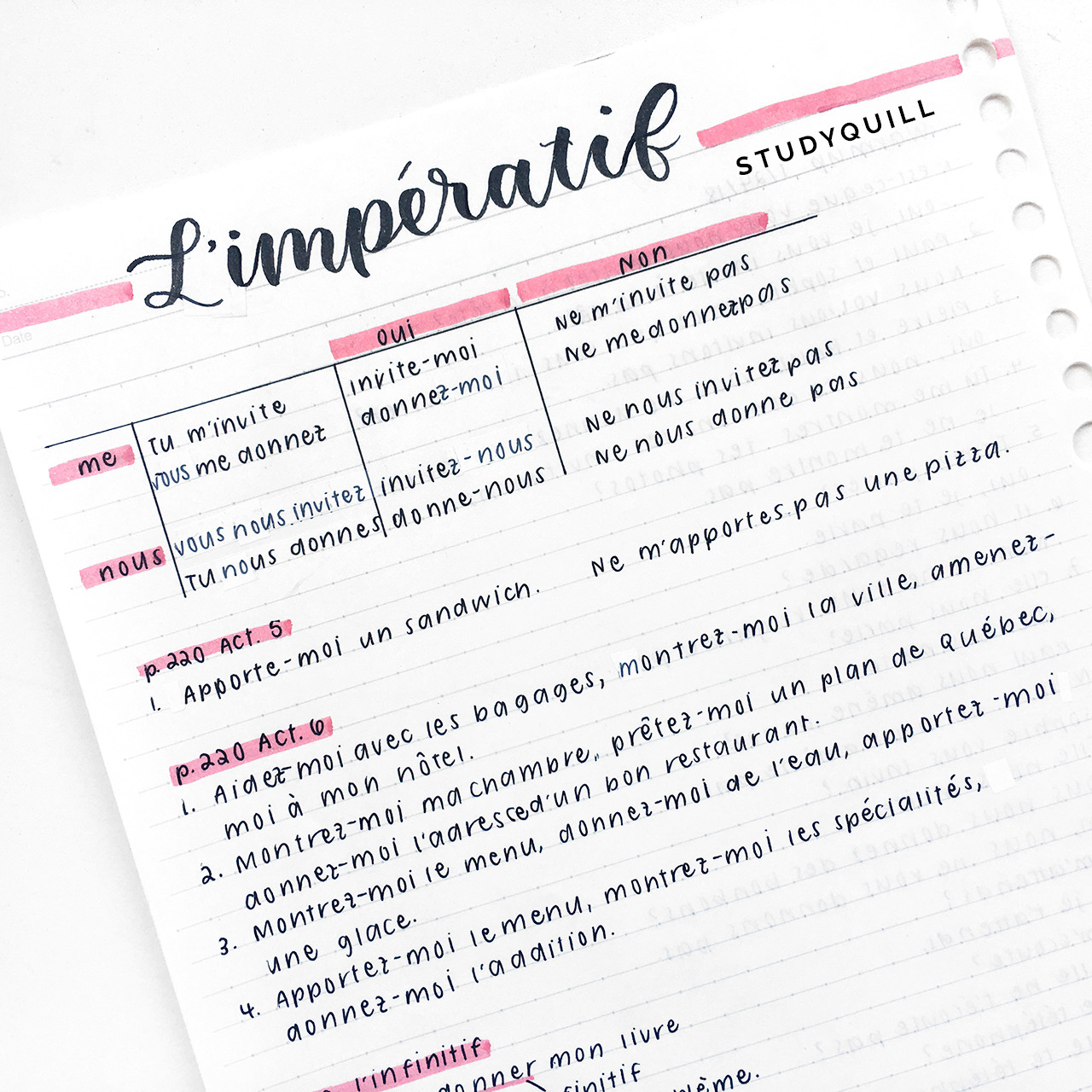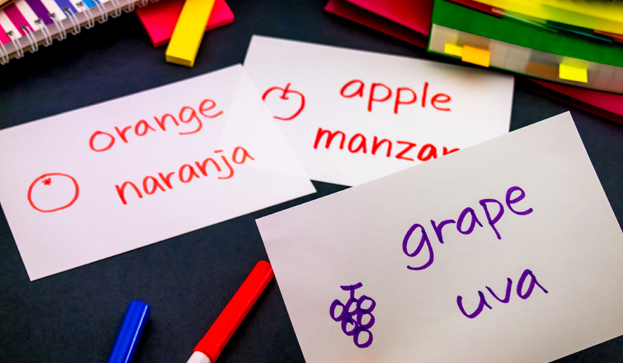
How To Memorise French Verb Conjugations Efficiently!
We are not going to pretend here, memorising french verb conjugation is super hard work!
You want to know how to learn them as quickly as possible right?
The best way to memorise french verb conjugations efficiently is to firstly learn the verbs with audio and repeat them out loud; then look for patterns in the conjugation tables, memorise them and apply them to hundreds of different verbs; next drill the verbs into your memory by writing them out by hand multiple times; then proceed by revising your french verbs regularly; make sure you practise conjugating them out of order every now and then finally practise your new conjugating skills by forming useful real-life context sentences that you are likely to use!
1. Learn The Verbs With Audio & Repeat Them Out Loud
French has lots of silent letters and sounds that are very foreign to native english speakers. That is why it is so important to memorise your french verb conjugations by first listing to the audio versions of them. This is also a great way to memorise if you are an auditory learner.
I suggest reading your french verbs at the same time as you listen to them so you know what they look like and how they sound. There are many resources online that are great for listening to french verbs. One that I used when I first started learning french was the youtube channel LearnFrenchWithAlexa.
These are some of her helpful french verbs conjugation videos:
- Group 1 Regular French Verbs ending in “ER” (Present Tense)
- Group 2 Regular French Verbs ending in “IR” (Present Tense)
- Group 3 Irregular French Verbs (Present Tense)
While you are listening make sure you do some sort of shadowing technique where you repeat the verb after the audio to perfect your pronunciation.
If you are interested you should also read my article on how to learn a language with youtube here!
2. Memorise The Endings Of The Regular Verbs (-er, -ir, -re) First Then Move To Irregular Verbs
If you are a beginner at french and you are just starting to learn your vern conjugations you should start with the regular verbs. The great thing about these is that there is a determined pattern to the verbs. This means you really only need to learn six endings per type and you can then conjugate hundreds of verbs.
Pay close attention to the pattern of how each verb is formed. This will make your memorisation much faster.
For example, look at these present tense -er verbs e.g. aimer, parler, danser etc.
| Pronoun | AIMER | PARLER | DANSER |
| Je | aime | parle | danse |
| Tu | aimes | parles | danses |
| Il/Elle/On | aime | parle | danse |
| Nous | aimons | parlons | dansons |
| Vous | aimez | parlez | dansez |
| Ils/Elles | aiment | parlent | dansent |
They all have the same endings: -e, -es, -e, -ons, -ez, -ent. And the stem also follows the same pattern, the -er has been taken off the infinitive of the verb! If you realise patterns like that, you can memorise your french verb conjugations much faster as there is much less that you have to learn now! This same method works for the -re and -ir verbs.
The only verbs that you have to fully memorise without shortcuts are the irregular verbs e.g. etre, aller, avoir, dire etc.
3. Use A French Conjugation Printable To Drill Your Verbs
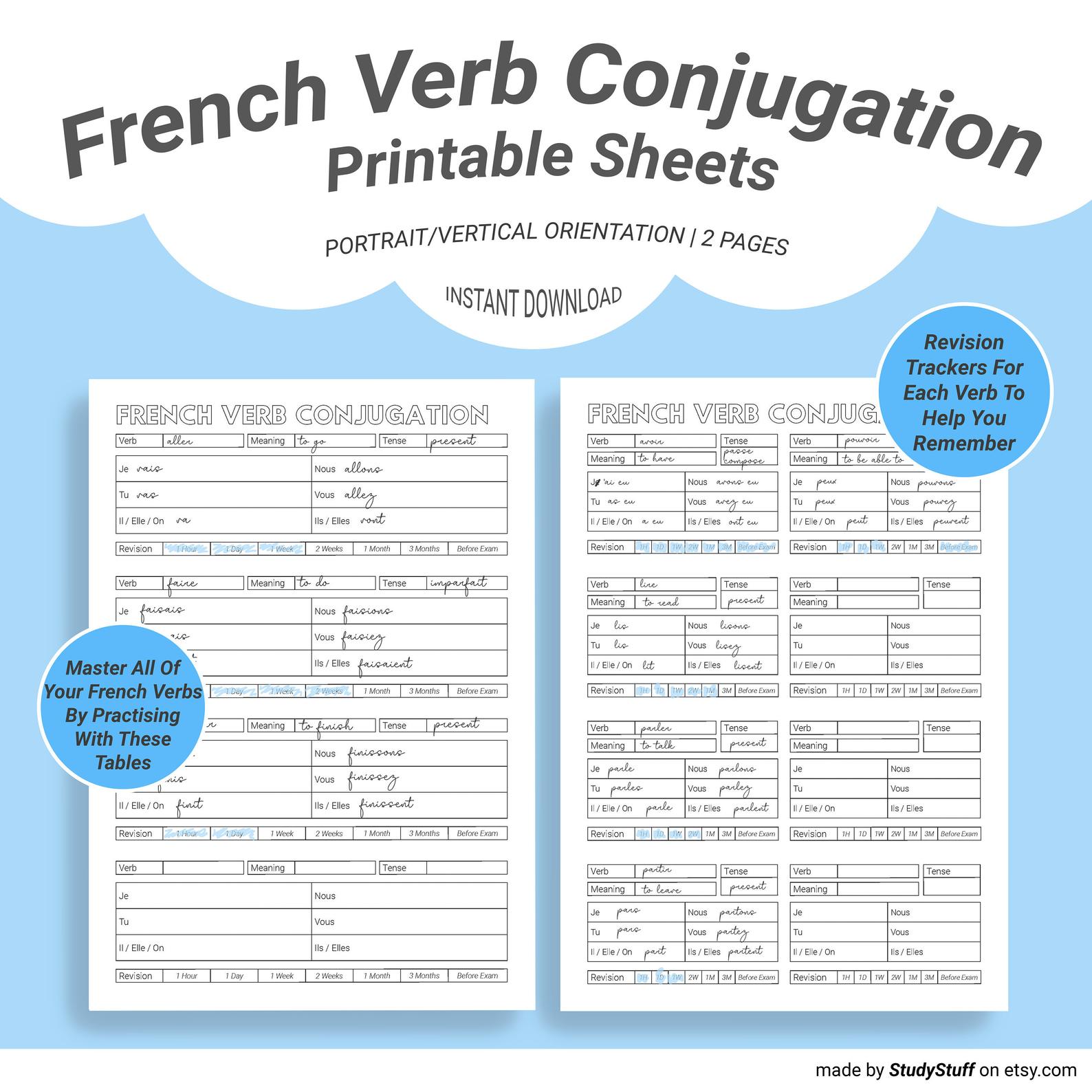
Another great way to memorise your french verbs is to just repetitively hand write them out. It might seem a bit boring but it is super effective! There have been tons of research into how handwriting improves your memory as well so don’t type out your verbs!
A french verb conjugation worksheet is a great way to memorise your verbs as it already has all the pronouns filled out in tables so you can fully focus on the conjugation. Also the french verb conjugation worksheet that I designed has a helpful revision tracker below each verb table to encourage you to study your verbs based on spaced repetition.
4. Apply Spaced Repetition To Your French Verb Learning
Spaced repetition is a scientific research backed way of studying based on how short term and long term memory works. In short, if you look at the diagram below, you can see how much everyone forgets after certain time intervals.
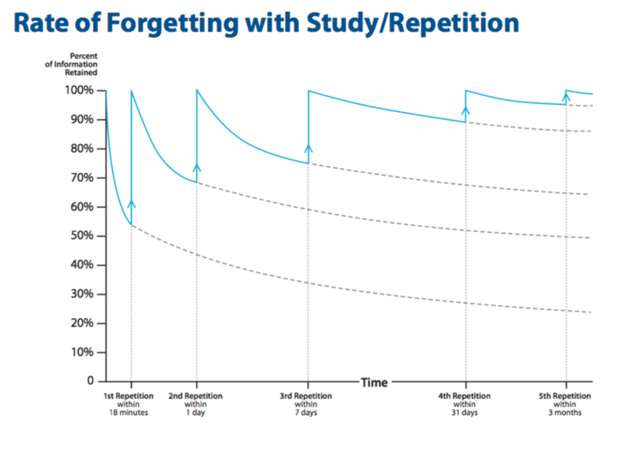
You can see from the graph that if you don’t revise something even after just one day, you would have forgotten just over 50% of what you learned 24 hours before. But if you revise at each set interval, you can get your retention back up to 100% and as you go along, the intervals get further and further apart! 🙂
You can apply spaced repetition to any subject or thing that you need to memorise. So if you really are serious about memorising your french verbs and getting them into your long term memory you should totally adopt this technique.
5. Try Conjugating Out Of Order
Sometimes when we learn we repeatedly do the same thing over and over again and not in new ways. It’s easy to fall into the trap of learning your conjugations in the designated/normal pronouns order of je, tu, il/elle, nous, vous, ils/elles. But for many people, once you take your verbs out of this order you can’t remember them!
It can be quite annoying having to repeat the whole table in your head to figure out how to conjugate ils for savoir or another situation like that! That is why you should try conjugating each pronouns in a random order once you have a good grasp of the verb.
A really good way to do this is to make conjugation flashcards where you write the pronoun on one side with the infinitive and the conjugated verb on the back. I like to make flashcards using my printable flashcard boxes which are based on spaced repetition but you could just use ordinary flashcards as well!
You might be interested in my article on how to effectively learn vocabulary with flashcards!
6. Form Sentences For Different Real Life Contexts With Each Pronoun
The final thing to do once you have memorised your basic french verb conjugation is to put your knowledge to the test by forming sentences. This is one of the best ways to get used to the idea of conjugating and having different endings for different pronouns which is very different to english. I suggest forming sentences that you would actually use in day to day life or just sentences that are relevant to you.
For example you might like to practice talking about someone’s appearance. In this situation you would be testing your knowledge of conjugating être:
- Je suis grand
- Tu es belle
- Elle est très mignonne
- Nous sommes jeunes
- Vous êtes petit
- Ils sont Américains
Or you might want to form more complex sentences with your new knowledge of french verbs about your hobbies:
- J’aime faire du sport le weekend
- Tu danses avec tes amis tous les vendredis soir
- Il mange un sandwich pour son repas
- Nous faisons partie du groupe de tennis
- Vous jouez au piano
- Elles peignent une image d’un chien
Before You Go!
Check Out My Digital Language Learning Planner For iPad Here
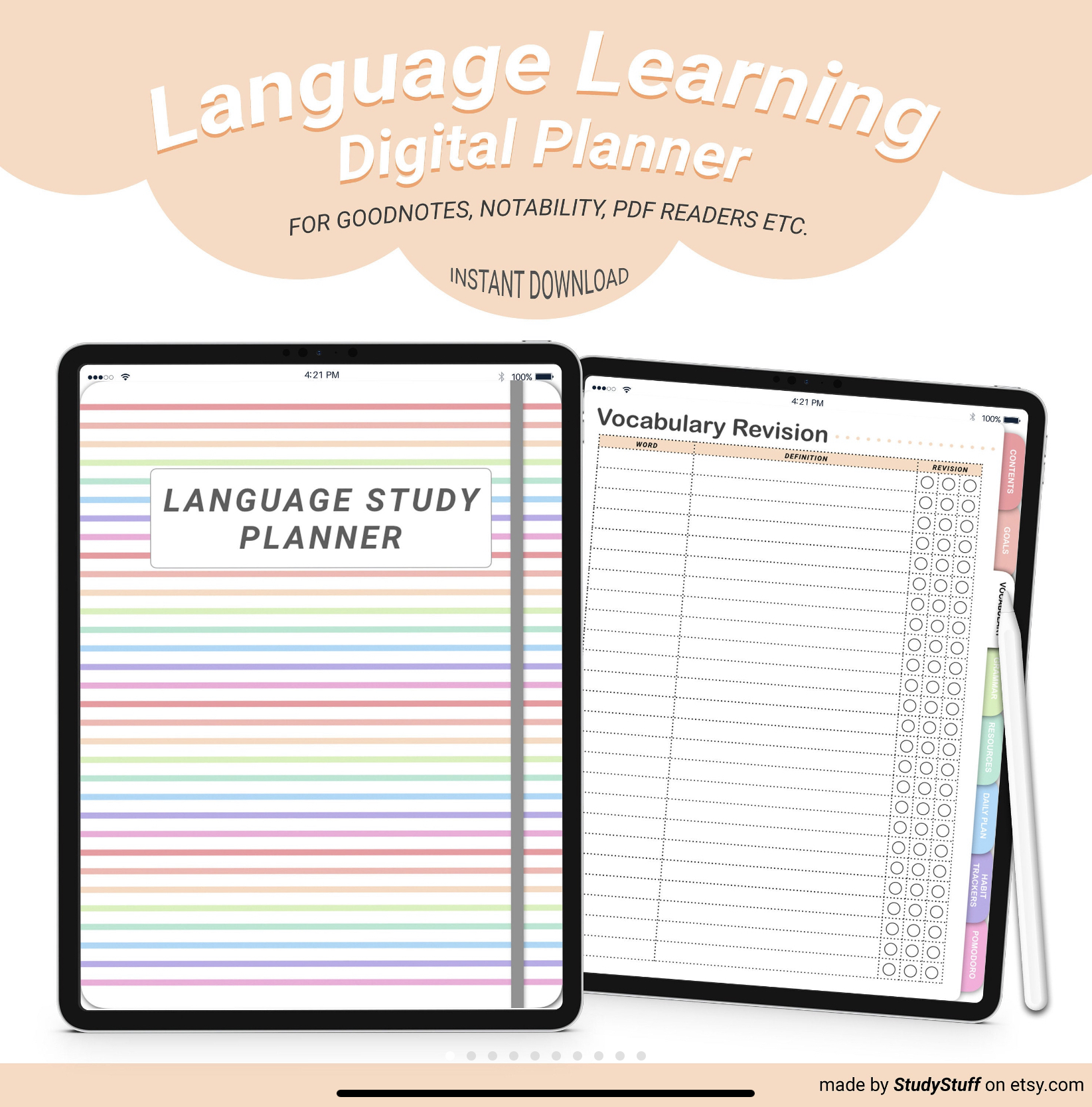
Join more than 1,212,346 people from 192 countries and learn a new language at your own pace at Rocket Languages!
Check Out The Online Courses Below:
Join A Live Online Language Learning Class With Real Teachers On Lingoda!
Check Out The Online Courses Below:
The best ways to learn a language without going to classes include: watching foreign language films on Netflix, using a …
There are many different note taking methods that can work well for language learning. To take effective notes for language …
If you are working full time and you want to learn a language, you need to make the most of …
Kinesthetic learners are the most physical of all learning styles meaning they absorb information through movement, touch and motion. Therefore, …
65% of the population are visual learners and therefore learn best by using images, graphics, colours, computers, books and other …
Flashcards are effective for language learning if you make and study them in the correct way. This is by making …



